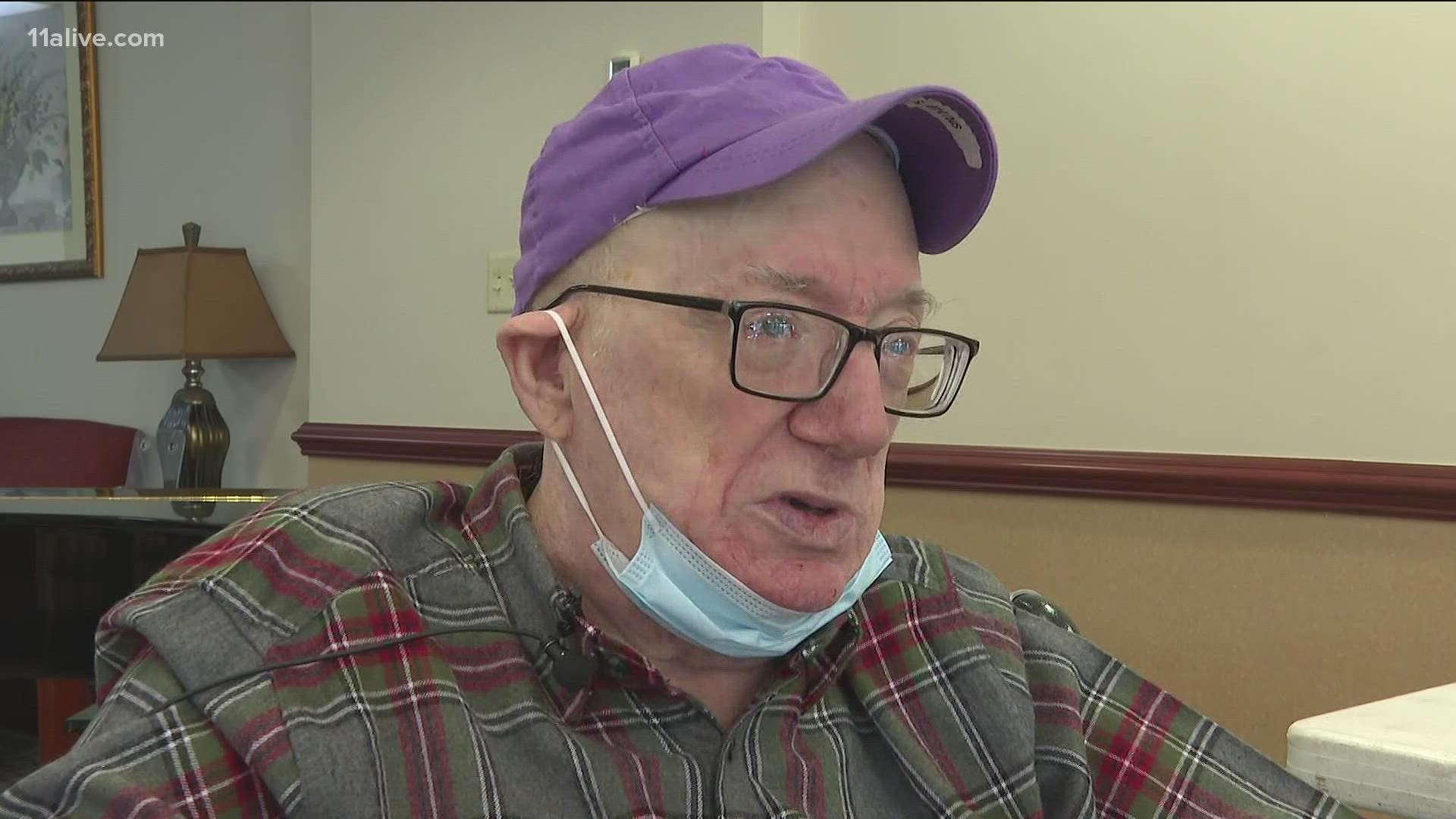ATLANTA — December 1 marks World AIDS Day. Willis Bivins, a near 40-year AIDS survivor, lives in Atlanta and has documented his experience as an activist in scrapbooks.
However, the pages in those books only tell part of his life's story.
Bivins will turn 80 next month, born in Birmingham, Alabama, in the Jim Crow South, in 1942.
He said he was about 18 or 19 when he came out as gay in college.
"I went to the library and looked up the word homosexuality and discovered there were other people who were homosexual like me," Bivins said.
Traveling to North Carolina, New York, and cities all over the world, Bivins was frequent visitor of the historic Stonewall Inn and marched in the first Pride parade in New York City in 1970.
By the 80s, he'd moved to Atlanta and founded a number of LGTBQ groups, as well as was active in the fight for equal rights.
Bivins donated his scrapbook to the Rose Library at Emory University. It's chock full of pictures, pamphlets, newspaper clippings, all documenting his experiences as a social activist over four decades.
"Atlanta has anonymity. They could live the life they wanted to that they couldn't across the small-town South," Randy Gue, who works in the librayr, said. "It's always been a haven for members of the LGTBQ community."
Bivins' battle with AIDS started in 1985.
"A full-blown case of it. I got sick, went to the hospital, went to Grady," he explained. "It was horrible, but I survived. I don't know how I did it. I don't know how I survived all this many years with HIV."
LGTBQ activist Dave Hayward, a close friend of Bivins, said a whole generation was lost to the AIDS epidemic and all of this time later– a stigma remains.
"You're not likely to share that, so there still is definitely a bias, a fear. It's very similar to COVID. People are afraid," he said.
But Bivins' life, preserved in the pages of a scrapbook, serves as an inspiration to others like him, and those who came after him.
"Me being part of the community, I wouldn't be able to be out and proud and all that without people like Willis, who went through it all and paved the way for us," said Jennifer Karlebach a clinical dietician at AG Rhodes of Atlanta where Bivins is in senior care.
For others, these pages offer a passage for the past, a reminder to find a path forward.
"Not only that we went through that, but we got through it and not only did we survive, we prevailed," Hayward added.
These days, Bivins spends his time over at AG Rhodes Senior Care, sharing his stories with friends and staff. But, students at Emory still study his scrapbooks.
Bivins added it's a joy to know people will continue to learn about the struggle for equality for generations to come.

